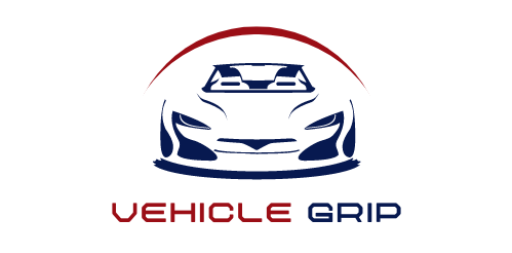In times of economic uncertainty, consumer behavior often shifts dramatically. One notable trend that has emerged is the increasing preference for used cars. From a car dealer’s perspective, understanding the reasons behind this shift can help in better serving customers and adapting to market changes. This article delves into why more consumers are turning to used cars amidst economic uncertainty and offers insights for both dealers and buyers.
Economic Factors Driving the Shift
Financial Prudence
Economic uncertainty often leads to financial prudence among consumers. People become more cautious about their spending, prioritizing essential purchases and seeking ways to save money. Used cars present a cost-effective alternative to new vehicles, offering significant savings on the purchase price.
- Lower Depreciation: New cars depreciate quickly, losing a majority of their value within the first few years. Used cars, on the other hand, have already undergone this initial depreciation, making them a more financially sound investment.
- Affordable Financing: Financing options for used cars are often more flexible and affordable, with lower monthly payments compared to new car loans.
Budget Constraints
With rising living costs and economic instability, many consumers face tighter budgets. Used cars provide a practical solution for those who need a reliable vehicle without stretching their finances.
- Lower Purchase Price: Used cars are often more affordable, allowing buyers to get more value for their money.
- Reduced Insurance Costs: Insurance premiums for used cars are typically lower than for new cars, further reducing the overall cost of ownership.
Market Dynamics
Supply Chain Disruptions
The COVID-19 pandemic and subsequent supply chain disruptions have significantly impacted the availability of new cars. Semiconductor shortages and production delays have led to longer wait times and higher prices for new vehicles. As a result, consumers are increasingly turning to the used car market to meet their immediate needs.
- Immediate Availability: Used cars are readily available, allowing consumers to avoid the long wait times associated with new car purchases.
- Competitive Pricing: While used car prices have risen due to increased demand, they still offer a more competitive option compared to the inflated prices of new cars.
Increased Demand for Personal Vehicles
The pandemic has also changed transportation preferences, with more people opting for personal vehicles over public transportation to reduce exposure to COVID-19. This shift has driven up demand for used cars, as they provide a safer and more convenient mode of transport.
- Health and Safety Concerns: Personal vehicles offer a controlled environment, reducing the risk of exposure to viruses and other health hazards.
- Convenience: Used cars provide an immediate and practical solution for those who need reliable transportation without the wait associated with new car purchases.
Consumer Preferences
Value for Money
Consumers are increasingly looking for value for money, and used cars often provide a better return on investment. Modern used cars come with advanced features and technologies that were once exclusive to new models, making them an attractive option for budget-conscious buyers.
- Advanced Features: Many used cars are equipped with modern safety and convenience features, offering a similar experience to new cars at a fraction of the cost.
- Certified Pre-Owned Programs: Certified pre-owned (CPO) programs offer additional peace of mind, with thorough inspections and extended warranties that make used cars a reliable choice.
Environmental Considerations
Environmental awareness is also influencing consumer choices. Buying a used car is seen as a more sustainable option, as it extends the life of an existing vehicle and reduces the demand for new car production, which has a significant environmental impact.
- Reduced Carbon Footprint: Extending the life of a used car helps reduce the carbon footprint associated with manufacturing new vehicles.
- Sustainable Choice: Consumers who are environmentally conscious view used cars as a way to contribute to sustainability efforts.
Strategies for Car Dealers
Expanding Inventory
To meet the growing demand for used cars, dealers should focus on expanding their inventory through various channels:
- Trade-ins: Encourage customers to trade in their old vehicles by offering competitive trade-in values.
- Auctions: Participate in online and in-person auctions to acquire a diverse range of used cars.
- Private Sellers: Purchase vehicles directly from private sellers through online platforms and local advertisements.
Leveraging Technology
Technology can help dealers manage their inventory more effectively and reach a wider audience.
- Inventory Management Software: Use advanced software to track inventory levels, forecast demand, and optimize stock.
- Digital Retailing: Offer online sales and virtual showrooms to provide a seamless buying experience for customers.
- Data Analytics: Analyze market trends and customer preferences to make informed purchasing decisions.
Enhancing Customer Relationships
Building strong relationships with customers can lead to repeat business and a steady supply of used cars.
- Loyalty Programs: Implement loyalty programs that incentivize customers to trade in their vehicles at the dealership.
- Customer Outreach: Regularly contact past customers to inform them of trade-in opportunities and special offers.
- Extended Warranty: Offering extended warranty options by partnering with dealer warranty services can further strengthen these relationships and provide customers with fair, reliable support on repairs and maintenance, giving them peace of mind and a reason to keep returning.
Tips for Buyers
Research and Preparation
Thorough research and preparation can help buyers find the best deals in the used car market.
- Market Prices: Check online listings to understand the current market prices for the models you’re interested in.
- Vehicle History: Use services like Carfax to check the history of any used car you’re considering.
- Dealer Reviews: Read reviews of dealerships to ensure you’re working with a reputable seller.
Flexibility and Patience
Flexibility and patience are key when shopping for a used car.
- Different Models: Be open to different makes and models that meet your needs.
- Older Vehicles: Consider slightly older vehicles that may still offer good value and reliability.
- Geographic Area: Expand your search to include dealerships in nearby cities or states.
Act Quickly
In a competitive market, good deals can disappear quickly.
- Pre-Approval: Get pre-approved for financing to streamline the buying process.
- Stay Informed: Sign up for alerts from online car marketplaces to be notified of new listings.
- Be Ready to Negotiate: Be prepared to negotiate on price and terms to get the best deal possible.
Conclusion
The trend of turning to used cars amidst economic uncertainty is driven by a combination of financial prudence, market dynamics, and changing consumer preferences. For car dealers, understanding these factors and adapting strategies accordingly can help in managing inventory and meeting customer demand. Buyers, on the other hand, can navigate the used car market by being flexible, doing thorough research, and acting quickly when they find a good deal.
Staying informed and adapting to market trends allows both dealers and buyers to capitalize on used car market opportunities. Whether you’re a dealer looking to optimize your inventory or a buyer searching for the perfect used car, the insights provided in this article can help you succeed in today’s competitive automotive landscape.

